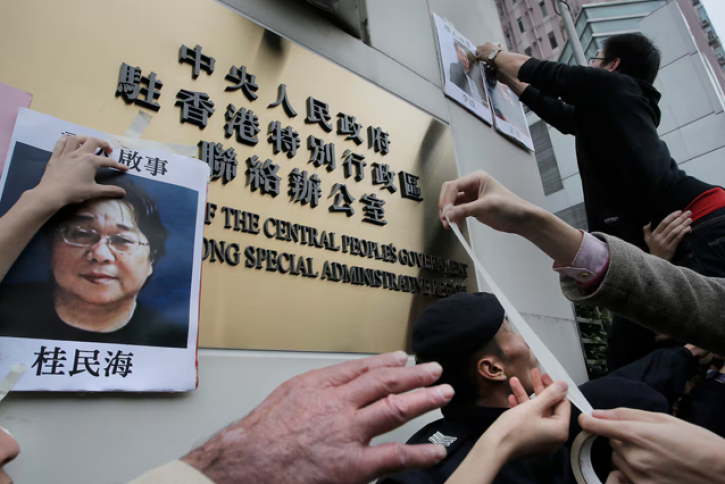
Authors often worry about book sales and their next project. But my concern has been when and whether my publisher will return home and how long the free speech we cherish in Taiwan will last.
In March 2023, the respected Taiwan-based publisher Li Yanhe, known by the pen name Fucha, boarded a flight from Taipei to Shanghai to visit relatives. Shortly after landing, he disappeared.
At the time, I was writing a nonfiction book for Li’s publishing house, Gūsa Publishing, which has translated and published books that are considered sensitive in Beijing. Some of my book’s subjects had lived through war and persecution, but I never imagined my publisher would suffer the same fate.
A month later, China’s Taiwan Affairs Office confirmed his detention, accusing him of “engaging in activities endangering national security” without providing further details.
While family and friends searched desperately for answers, Li’s detention sent a chilling message to Taiwan’s media, academic, and publishing circles, raising concerns that after China’s sweeping crackdown on free speech and activism in China and Hong Kong, Beijing is escalating its efforts to extend control over Taiwan. For decades, Taiwan’s publishing industry has thrived free of Chinese censorship, providing a refuge for books banned or suppressed by Beijing.
However, as tensions between Taiwan and China continue to rise, Li’s case has heightened fears that Taiwan’s vibrant press freedom is under growing threat from the People’s Republic of China, which claims Taiwan as its own despite never having ruled it. With Taiwan diplomatically isolated on the international stage due to China’s pressure, the preservation of its free press has become more crucial than ever.

